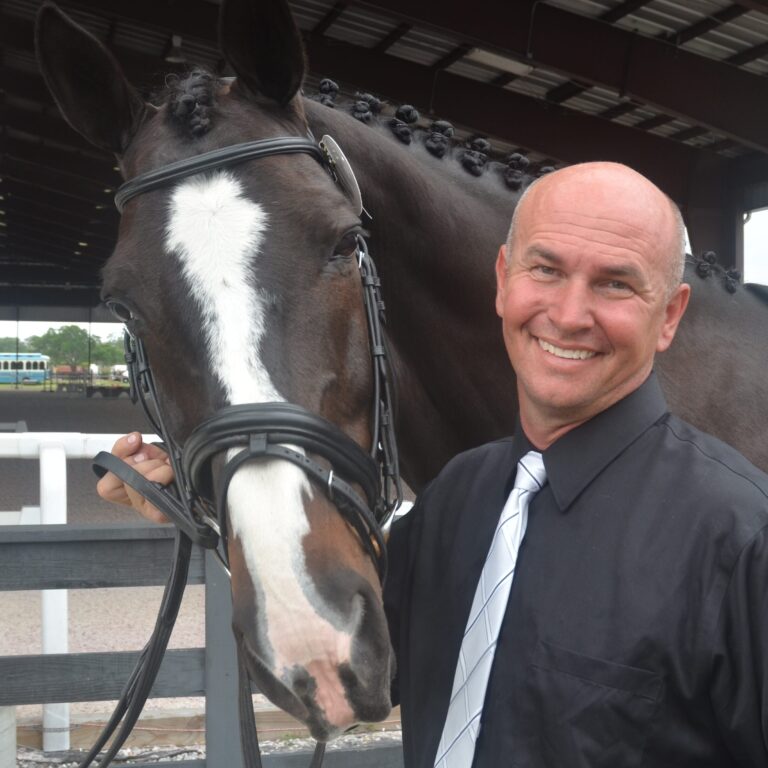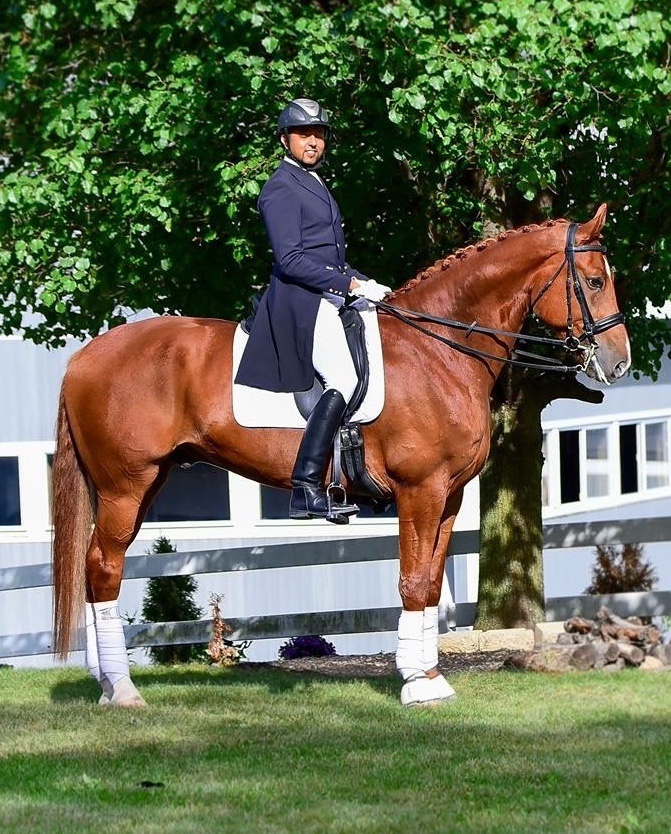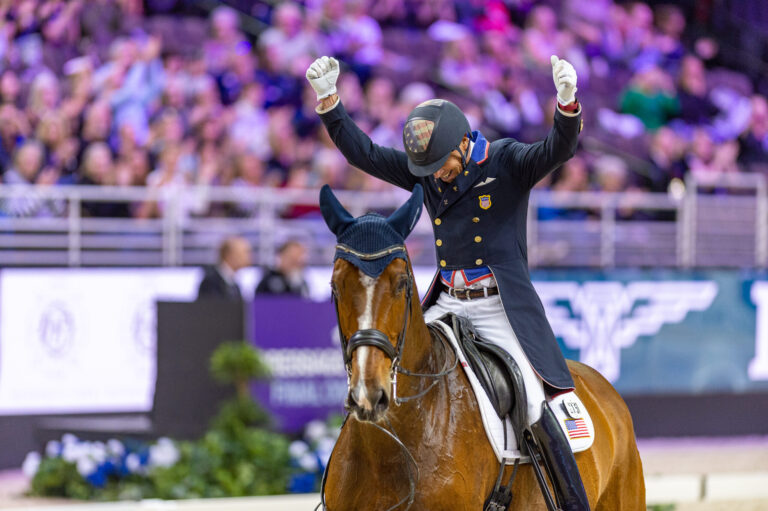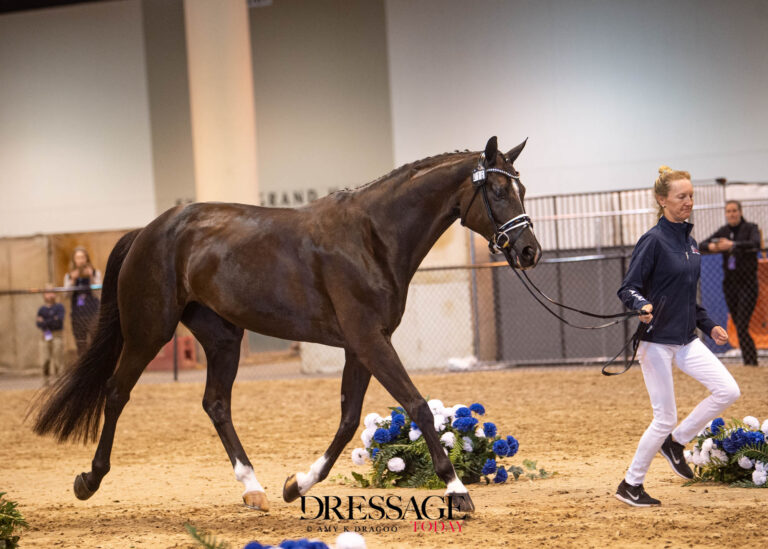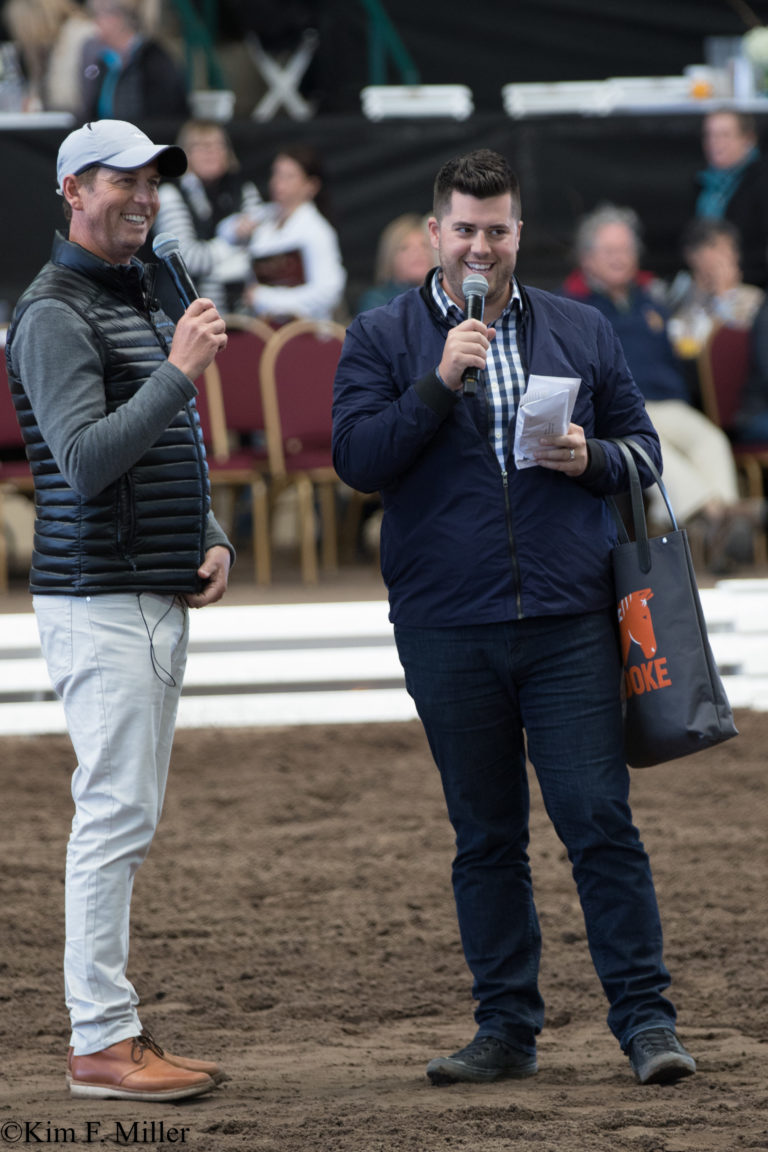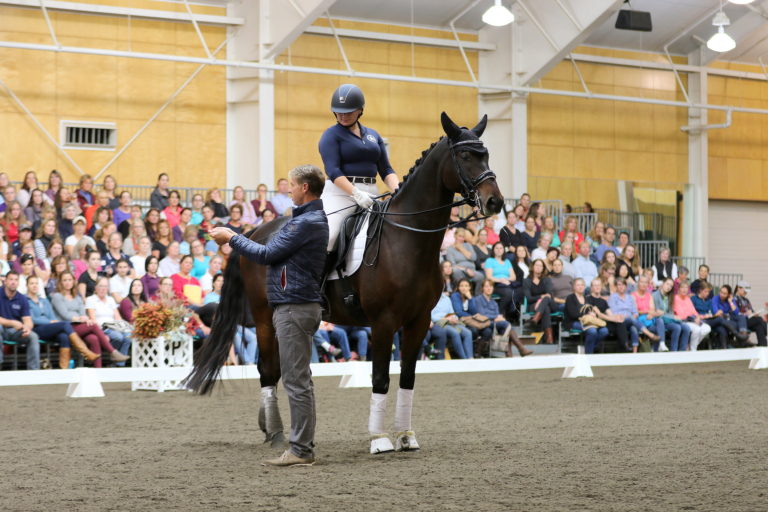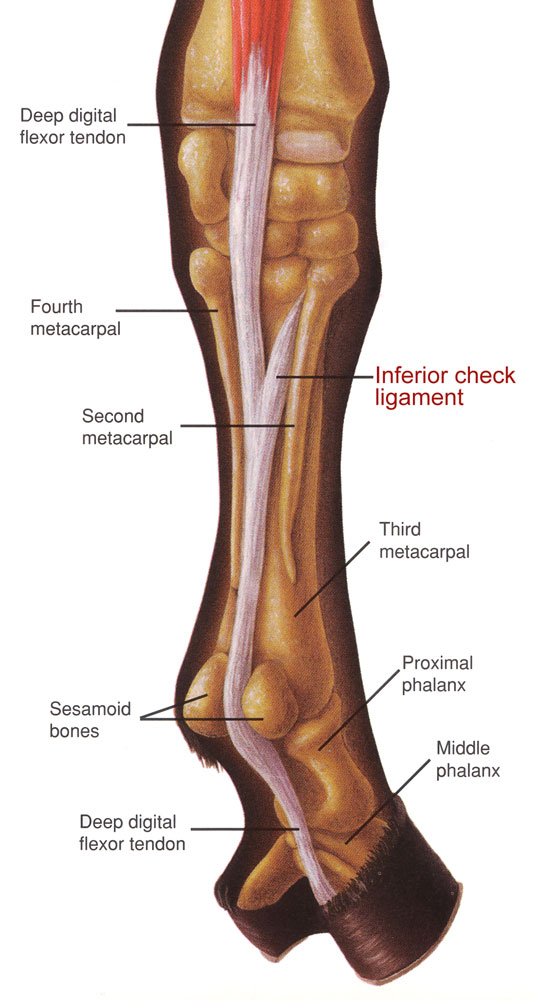The owner of the first barn I worked at said something that has always remained with me: Do what you love, and the money will follow. As a 13-year-old, I think I still believed that money grew on trees, and I felt confident that no matter what career I chose in life, I would have all the money I needed. However, I did recognize that money would enable me to have horses in my life, and my only plan for a future career was that it would bring me horses.
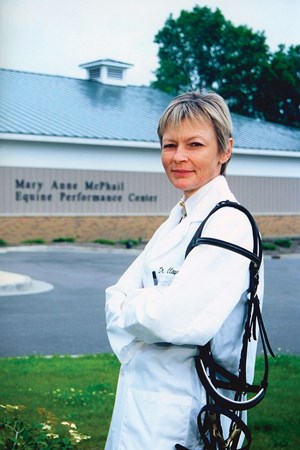
Since then, my perception of reality has sharpened. I initially wanted to be a veterinarian, but after realizing that this was not the right path for me, I switched my college major to English. I thought my professional life and my horse life might always be separate until a professor told me that I should look into writing and editing for a horse magazine. Was it really possible that I could do what I loved professionally and combine it with horses? It seemed too good to be true. But not too much later, I became an intern at Dressage Today, and I’ve learned that no matter what profession you want to break into, there is always a way to incorporate horses. The horse industry is wide and international and it has need for more than just riders. Whether your passion (besides horses, of course) is business, photography, public relations, science, writing or editing, there is a place for you to do what you love in the horse world.
An Equestrian’s Craft
I interviewed several successful professionals in different equestrian fields to see what advice they could offer. “I pursued something that I was deeply interested in and then layered education, experience and lifelong learning on top of the passion,” says Lisa Derby Oden, who started Blue Ribbon Consulting, a company dedicated to helping people grow successful horse businesses. Lisa’s passion for horses started when she was 8 and led her to earn a bachelor’s degree in animal science/ equine studies and later a master’s in organization and management. Her formal education, combined with years of horse experience, propelled her into a successful career and won her the Van Ness award from the American Horse Council for outstanding service to the horse industry. “I know so many people whose degrees have nothing to do with their work,” she explains, “but my education paid off in a direct way for me.”
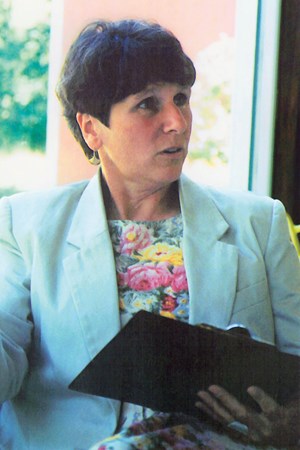
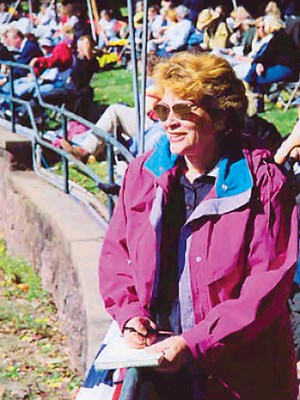
Nancy Jaffer, an award-winning photojournalist who has covered eight Olympic Games, 21 World Cup Finals and all World Equestrian Games since the event’s inception, advises taking opportunities as they come. “There is no experience that isn’t useful,” she says. Nancy’s first job was as a reporter for a newspaper, where she was able to gain a variety of experiences that continue to enrich her career. “Newspapers are great training because you learn how to cover a news story, you learn about sports, you learn about finances, and all of those things come up in the horse world, too.”
In addition to life experience and academic training, the experts say it’s important to learn from others. “Books can teach us quite a lot, but it is our mentors who affect the deepest knowledge,” says Jane Karol, PsyD, a psychotherapist and founder of the Bear Spot Foundation, a Massachusetts-based facility for equine-assisted psychotherapy. In addition to her education, Karol completed numerous internships and fellowships where she learned from experts in her field. “My first jobs were part of practicum or internship placements. They were training programs that helped me learn to be a therapist, and each one of them informs the [child and adolescent psychotherapy] work I do now.”
A thorough knowledge of horses can open doors you might not have considered. Heidi Zorn founded Premier Equestrian, a company that produces affordable dressage arenas, jumps, footing and other barn accessories. It all began when her trainer mentioned that she wanted to purchase a dressage arena but it was too expensive. Heidi, then an advertising representative, had a client who owned a PVC fabrication shop and told her trainer that she could get one made at a lower cost. This first arena launched a successful business that resulted from Heidi’s understanding of the horse industry. “It is very difficult finding people who can speak the horse language,” she says. “Teaching someone QuickBooks and office programs is easy compared to educating them about horses.”
What Are You Good At?
Since lifelong learning is essential to success in the horse industry, it’s important that you play to your strengths. Beth Beukema is an associate professor at Johnson & Wales University, where she directs the Center for Equine Studies. An accomplished dressage rider, she wanted a career that would also highlight her aptitude for academics. “The intellectual part of dressage has always appealed to me,” she explains. “I pursued this career because I really like teaching and I really like academics, yet I wanted more than just teaching riding.” Today Beukema is also president of the Intercollegiate Dressage Association. (Read her essay, “What I Wish I’d Known Then,” on page 80.)
Sometimes it might take a while to find a career that suits you best, but be patient—a few wrong turns can be good. “It took some time to find the right path for me in the equine industry,” admits Jenny Harris, now the senior team leader at SmartPak, a firm that offers equine supplements, tack and equipment and rider apparel. “After test-driving several other horse careers, I wanted to utilize both my real-world experience and my business experience. I found a perfect combination at SmartPak. I am able to share my passion for horses and people and still occasionally get to be in the barn at “barn visits” and at trade shows.”
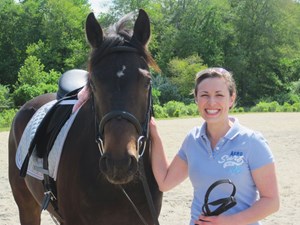
It’s important to learn from our mistakes. Often our best opportunities for learning come when we have fallen short because then we can recognize that we still have room to learn more. It’s also essential to be open or we might miss out on an opportunity to discover what we are really passionate about.
Hilary Clayton, BVMS, PhD, MRCVS, has the McPhail Dressage Chair in Equine Sports Medicine at Michigan State University and is currently researching the effects of physiotherapeutic techniques in horses, but that was not her original plan. “To be honest, my only ambition throughout vet school was to be a practicing veterinarian,” she says. “It was only later that I discovered the excitement of a career in research and ultimately found my passion in studying equine biomechanics.”
After careful planning, there comes a point where you just need to jump in. That’s what I did at Dressage Today. Everyone has to start somewhere, and sometimes all you need to do is ask. Most importantly, do what you love, and the horses will follow.


